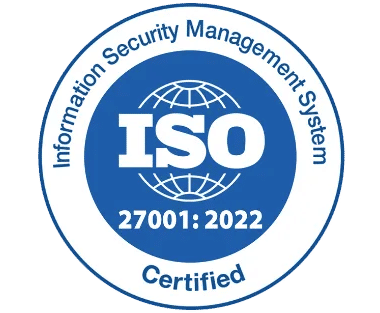Elevate Your Small Business: How Ticketing System Boosts Efficiency with Microsoft 365
%20(1)_W919MFiVVP.png)
Small businesses face a tough reality: they need to deliver top-notch customer service with limited time, staff, and resources. Between answering emails, handling phone calls, and managing daily tasks, it’s easy for customer requests to slip through the cracks. That’s where the ticketing system comes in—a game-changing tool that organizes support, speeds up responses, and keeps customers happy. Pair it with Microsoft 365, a platform many businesses already use, and you’ve got a powerful combo that simplifies workflows and drives growth
In this blog, we’ll dive into why a ticketing system for small businesses is necessary. By the end, you’ll see how the right ticketing system can transform your business, let’s get started!
Why Small Businesses Need Ticketing System
Running a small business often feels like juggling a dozen balls at once. You’re the owner, the marketer, the salesperson—and, oh yeah, the customer support team too. When a customer emails with a question or calls about a problem, it’s tempting to scribble it on a sticky note or flag the email for later. But as requests pile up, things get messy fast. Missed messages, delayed replies, and frustrated customers can hurt your reputation and bottom line.
Ticketing System is like a digital assistant that organizes every customer interaction into a “ticket”—a neat little package you can track from start to finish. Whether the request comes via email, chat, or social media, it’s all in one place. No more digging through inboxes or wondering who’s handling what.
Here is why small businesses love it:
- Everything Stays Organized: Say goodbye to cluttered inboxes. Tickets keep requests in a single system, so nothing gets lost.
- Faster Replies: Automation sends tickets to the right person right away, cutting down wait times.
- Happier Customers: Quick, clear responses show customers you care, building trust and loyalty.
- Smarter Decisions: Track how many tickets you get, how fast you solve them, and where you can improve.
The best part? You don’t need a big budget or a tech degree to use it. Today’s help desk tools are affordable, easy to set up, and perfect for small teams. Let’s look at some of the best options out there and how they can work for you.
Top Ticketing System Solutions for Small Businesses
Not every help desk tool is the same, and that’s a good thing. Each one brings something special to the table.
1. Helpdesk 365: Simple, Smart, and Microsoft-Powered
Helpdesk 365 is designed for small businesses that want a hassle-free support solution with powerful benefits. It’s all about keeping things easy, leveraging the Microsoft 365 tools you already use—like Outlook and Teams—to create a seamless help desk experience. What makes it stand out? Tight integration and smart automation that save you time.
What It Offers:
- Automatic Ticket Creation: Turns emails in Outlook or chats in Teams into tickets instantly, so no customer request gets missed.
- AI-Suggested Replies: Provides quick, smart response suggestions, cutting down on repetitive typing for your team.
- Custom Forms: Gathers key customer info upfront with tailored forms, speeding up the resolution process.
- Team Collaboration Tools: Lets your team work together on complex tickets right within Microsoft 365.
- Why It’s Awesome:
- Scalable Plans: Affordable options that grow with your business—start small and expand as needed.
- Works with Microsoft 365: Integrates effortlessly with the tools you’re already using, no extra software required.
- Saves Time with Smart Features: Automation and AI streamline support, perfect for busy teams who want to focus on what matters.
With Helpdesk 365, you get a simple, smart support system that fits right into your Microsoft ecosystem. It’s the perfect pick for small businesses looking to deliver great service without the headaches.
2. HelpDesk.com: Simple, Smart, and Scalable
HelpDesk.com is built for small businesses that want a no-fuss solution with big benefits. It’s all about making support easy, with a clean design that anyone can use—no tech skills required. What sets it apart? Automation and AI that save you time.
What It Offers:
- Automatically sends tickets to the right team member.
- AI suggests quick replies, so you’re not typing the same thing over and over.
- Custom forms to collect key details from customers upfront.
- Team tools to collaborate on tricky tickets.
- Why It’s Awesome:
- Affordable plans that grow with you—start small and add more later.
- Works with tools you already use, like Microsoft 365.
- Saves time with smart features, perfect for busy teams.
3. SolarWinds Web Help Desk: Affordable and Straightforward
SolarWinds Web Help Desk is a favorite for small businesses that want value without complexity. It’s budget-friendly and focuses on automating the basics, so you can spend less time on support and more time running your business.
What It Offers:
- Turns emails into tickets automatically—no manual work needed.
- Dashboards to see ticket status at a glance.
- Tracks your tech gear, like laptops or printers, alongside support requests.
- Pairs with other SolarWinds tools if you’re IT-focused.
- Why It’s Awesome:
- Low cost, with a free trial to test it out.
- Simplifies ticket tracking, freeing up your day.
- Easy for small teams to learn and use.
4. Desk365.io: Simple, Smart, and Teams-Powered
Desk365.io is designed for small businesses that want a no-fuss help desk solution with big benefits. It’s all about making support easy, with a Microsoft Teams-based interface that anyone can use—no tech skills required. What sets it apart? Seamless integration with Microsoft 365 and automation that saves you time.
What It Offers:
- Automatic Ticket Creation: Converts emails and Teams chats into tickets instantly, ensuring no customer request slips through the cracks.
- AI-Suggested Replies: Provides quick, smart response suggestions, reducing repetitive typing for your team.
- Custom Forms: Gathers essential customer details upfront with customizable forms, speeding up the resolution process.
- Team Collaboration Tools: Allows your team to work together on complex tickets right within Microsoft Teams.
Why It’s Awesome:
- Scalable Plans: Affordable options that grow with your business—start small and expand as needed.
- Works with Microsoft 365: Integrates effortlessly with the tools you’re already using, no extra software required.
- Saves Time with Smart Features: Automated workflows and AI streamline support, perfect for busy teams who want to focus on what matters.
5. Freshworks Freshdesk: All-in-One Simplicity
Freshworks Freshdesk is a go-to for small businesses that want everything in one spot. It pulls inquiries from email, chat, and social media into a single dashboard, so you’re not bouncing between platforms all day.
What It Offers:
- Handles requests from multiple channels—email, Twitter, you name it.
- Assigns tickets automatically based on who’s free or skilled.
- Team tools like shared notes to solve issues together.
- AI speeds up replies with suggested answers.
Why It’s Awesome:
- Super easy to set up, even if you’re not techy.
- Free plan for tiny teams, with affordable upgrades.
- Ties into Microsoft 365 for a smooth workflow.
How Helpdesk Software Works with Microsoft 365
If your business uses Microsoft 365—think Outlook, Teams, and Word—you’re already halfway to a streamlined setup. The right helpdesk software plugs into this ecosystem, making support feel like part of your daily routine. Here’s how it fits together:
Emails Become Tickets:The helpdesk software will grab emails from Outlook and turn them into tickets. No more lost messages—just organized action.
- Teams as a Support Hub: With integrations, you can manage tickets in Microsoft Teams. Chat with your crew, update tickets, and solve problems without switching apps.
- One-Stop Communication: Reply to customers from Outlook or Teams, and the help desk logs it all. It’s like having a single conversation thread for every issue.
- Customer Info Sync: Some tools sync contacts with Microsoft 365, so your customer list stays current across platforms.
Must-Have Features in Ticketing System
With so many choices, how do you pick the right one? Focus on features that match your needs. Here’s what to look for:
- Ticketing Basics: Create, assign, and track tickets easily.
- Automation Magic: Route tickets, escalate urgent ones, and follow up without lifting a finger.
- Multi-Channel Power: Manage email, chat, and social in one spot.
- Self-Help Options: Add a FAQ or knowledge base, so customers can solve simple stuff themselves.
- Number Crunching: Reports on ticket volume, response times, and satisfaction keep you in the know.
- Tool Teamwork: Works with Microsoft 365 or other apps you use.
- Room to Grow: Scales up as your business does—add agents or features when you’re ready.
Oh, and don’t forget: look for free trials or low-cost plans. Test the waters before you dive in!
How to Pick the Perfect Ticketing System
Ready to choose? Here’s a simple plan:
1. Know Your Needs: How do customers reach you? How big’s your team? What features matter most?
2. Set a Budget: Find a price that fits—many tools start cheap or free.
3. Try Before You Buy: Use free trials to test the software with your team.
4. Check Connections: Make sure it plays nice with Microsoft 365 or other tools.
5. Think Long-Term: Pick something that grows with you, not something you’ll outgrow.
Take your time, test a few, and you’ll land on the perfect fit.
Conclusion
The Ticketing System takes the stress out of support, letting you focus on what you love: building your business. And with Microsoft 365 in the mix, it’s easier than ever to keep everything running smoothly.
Our Microsoft Helpdesk 365 software supercharges this experience, seamlessly integrating with Microsoft 365 tools like Teams and Outlook. It offers AI-powered automation, customizable workflows, and a user-friendly interface—empowering your small business to deliver top-notch support effortlessly while keeping all your data secure within the Microsoft ecosystem.
Frequently Asked Questions
Why does a small business need a ticketing system?
Small businesses benefit from ticketing systems by streamlining customer support, reducing response times, tracking issues effectively, and improving customer satisfaction—all with limited staff and resources.
What features should a small business look for in a ticketing system?
Key features include ease of use, automation (e.g., ticket assignment), multi-channel support (email, chat, social media), a knowledge base for self-service, reporting tools, and scalability to grow with the business.
How does a ticketing system improve customer service?
It organizes inquiries, ensures no request is missed, speeds up responses, and provides data insights to improve support—all critical for keeping customers happy with a small team.
Is a ticketing system hard to set up for a small business?
Many systems are designed for easy setup with user-friendly interfaces and minimal training. Cloud-based options require no installation, just an internet connection.
What’s the difference between a help desk and a ticketing system?
A ticketing system is a component of a help desk, focusing on managing and tracking support requests. A help desk is broader, often including additional features like live chat or knowledge bases.










_svxLrd-8yH.png)

_2VYSFUTN5m.png)

_JiluXJRGNl.svg)

_2djTKNocf.png)





_Rapo0hRMBy.png)










